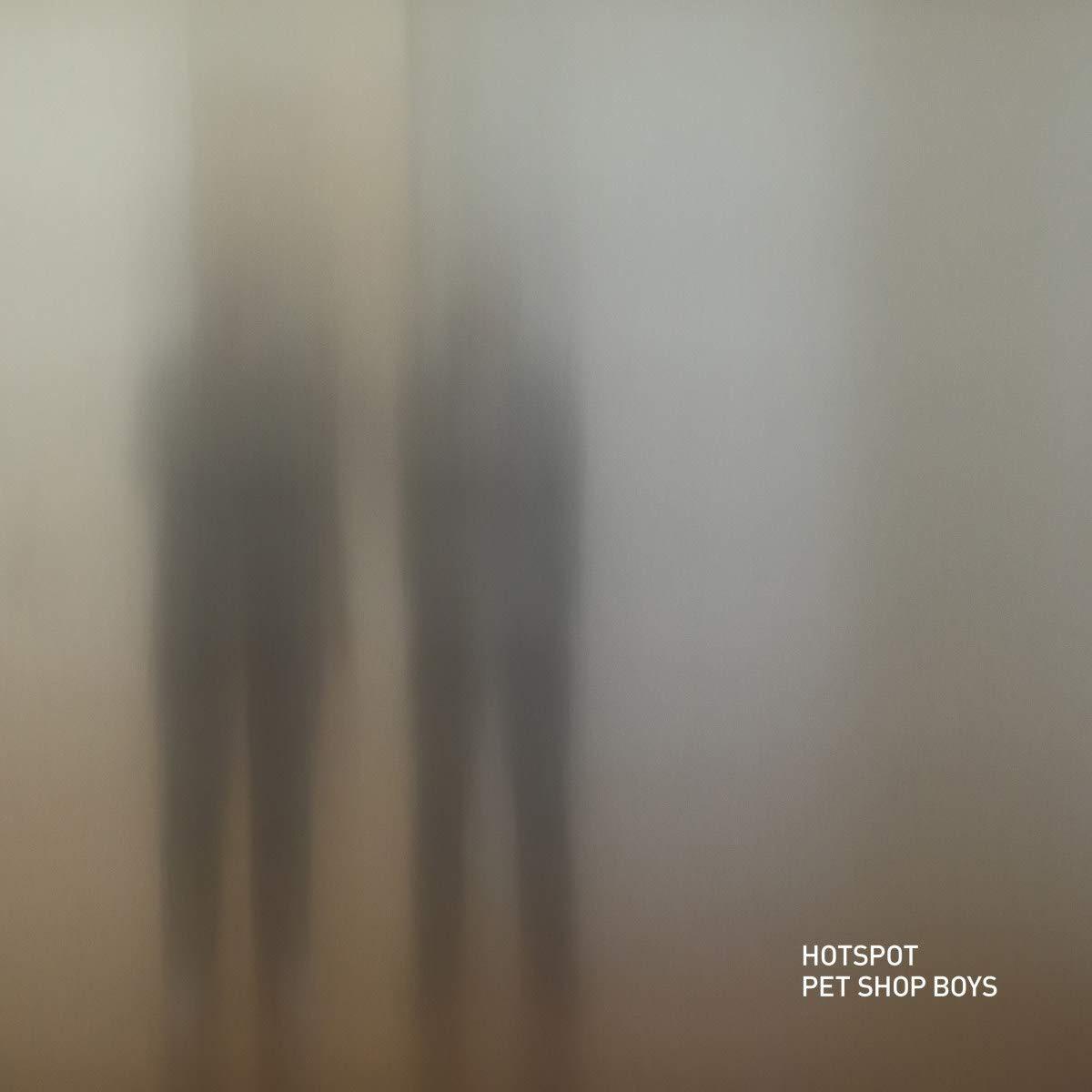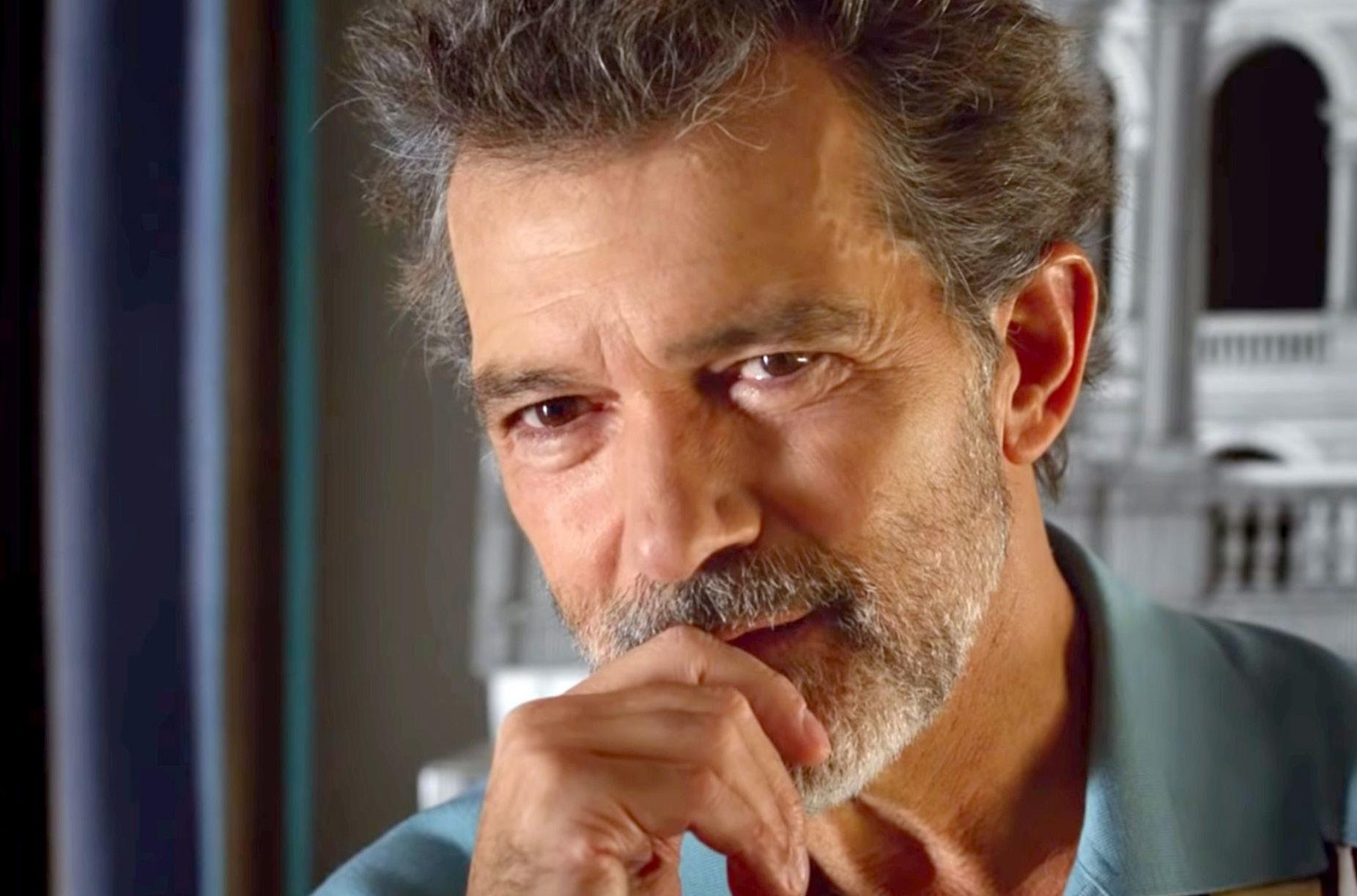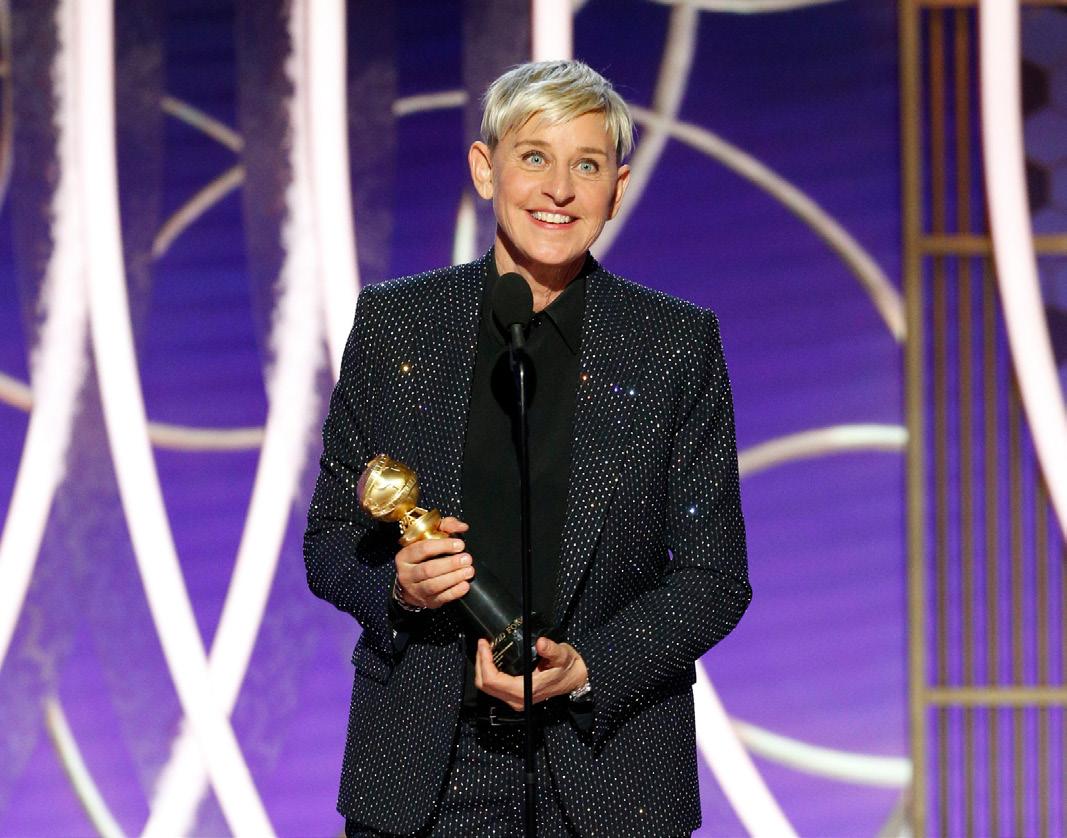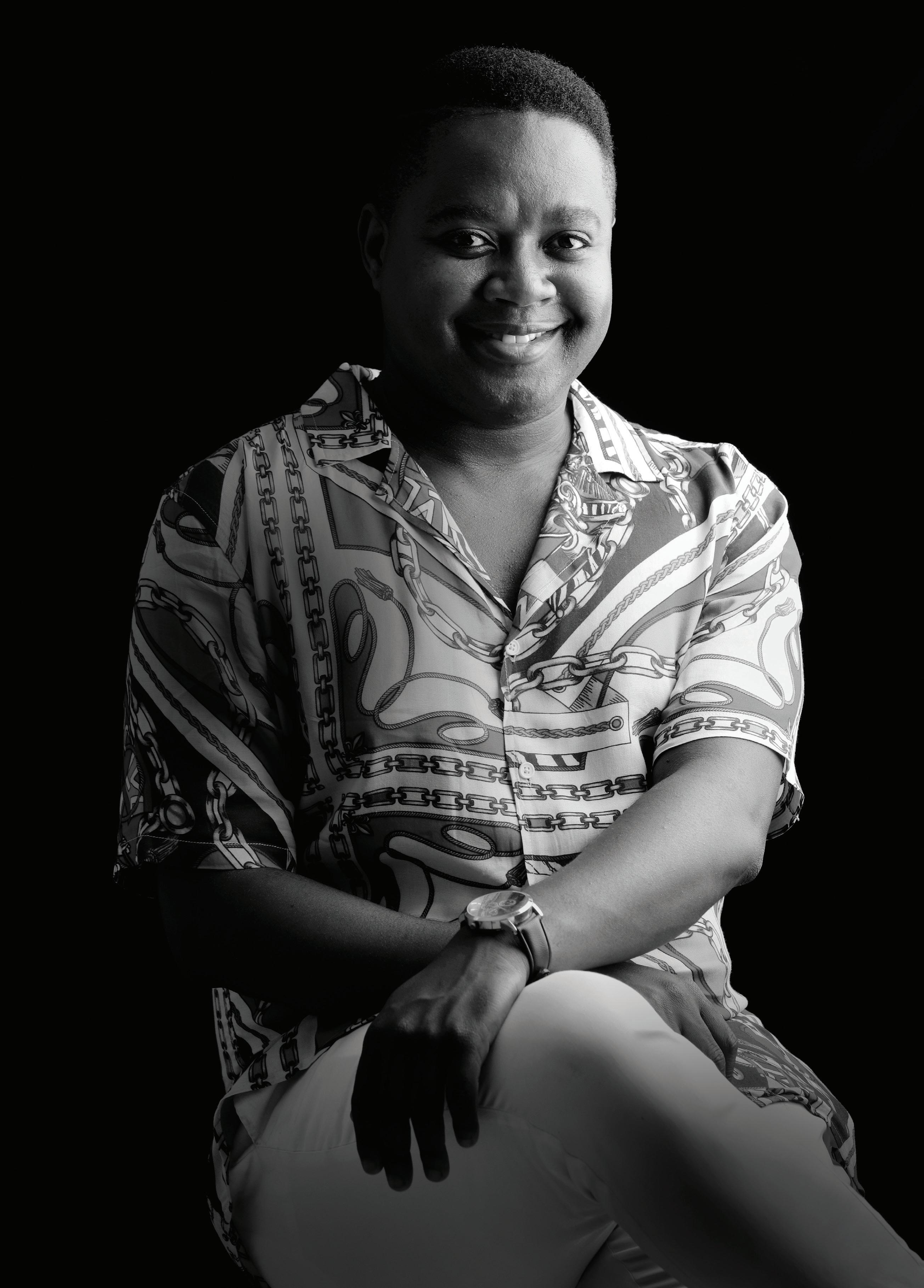
15 minute read
Win Tickets To Cape Town Pride 2020
WIN TICKETS TO CAPE TOWN PRIDE 2020 PRIDE MERCHANDISE Go to www.capetownpride.org and get your souvenir with your ticket to Cape Town Pride 2020 or book with Quicket and get your souvenir for the special ticket price.
Available in black only and printed with the Cape Town Pride Logo PRIDE CAP You can also visit our stall at Pride Mardi Gras 2020 on the 28th February and buy you souvenir on the day!!
Advertisement
R80 if purchased online with your Pride ticket
R100 normal price without the ticket special
PRIDE T - SHIRT
Available in all colours indicated and printed with the Cape Town Pride Logo. Sizes: S, M, L, XL & XXXL
OUT AFRICA MAGAZINE & CAPE TOWN PRIDE ARE GIVING AWAY 20 TICKETS TO THE COUNTRY’S BEST PRIDE EVENT
“TRUE TO YOU - BE YOURSELF”
FOR YOUR CHANCE TO WIN A TICKET TO THE BIGGEST PRIDE PARTY OF THE YEAR ... JUST ANSWER THE FOLLOWING QUESTION AND EMAIL YOUR REPLY WITH PRIDE TICKET GIVE-AWAY IN THE SUBJECT LINE, TOGETHER WITH YOUR NAME AND CONTACT NUMBER TO: OUTMAGAZINE@MWEB.CO.ZA
QUESTION:
R90 if purchased online with your Pride ticket

R110 normal price without the ticket special
PRIDE GOLF SHIRT
Available in black and embroidered with the Cape Town Pride Logo Sizes: S, M, L , XL & XXL
R230 if purchased online with your Pride ticket

R250 normal price without the ticket special
PRIDE TOTE BAG
Printed with the Cape Town Pride Logo on one side
R80 if purchased online with your Pride ticket

R100 normal price without the ticket special
PRIDE COFFEE MUG Printed with the Cape Town Pride Logo on both sides

Source: The Quietus (www.thequietus.com)
YES! YES! YES! ... it good to have gay music icons, the Pet Shop Boys back with the release on the 24th January of their 14th studio album Hotspot. It’s the last in a trilogy of albums produced by Stuart Price, and it is so infectious, and if electronic anthems are your thing, soak it up!
Hotspot is supported by the singles Dreamland featuring Years & Years, which was released on 11 September 2019, and Burning the Heather, which was released alongside the album announcement on 14 November 2019.
On opening track Will O The Wisp, with its synth-heavy, oscillating opening redolent of Madonna’s Hung Up – itself a Price production directly inspired by Lowe’s vacillating, jumped-up take on early disco – Tennant observes a “free spirit” in a “battered leather cap” who must be “getting bored” climbing off of a train in clubland “in search of love and laughter.” The will-o’-the-wisp in question could be seen as an embodied desire, on the part of Tennant and Lowe, to return to the state of grace afforded by the dance floor.
Indeed, Dreamland, the record’s almost criminally poppy lead single featuring British synth-pop act Years & Years, eulogizes the “free land” of the unconscious, where “you don’t need a visa / you can come and go and stay right here.” “I’m so tired of my homeland,” sings Tennant, dancing around the Brexit issue in a veiled manner less ironic, as is his lyrical propensity, than it is underdeveloped. Running away to Germany or drifting off to sleep are temporary measures in the face of a dismal political situation that has endured since their self-diagnosed “imperial phase” of the late eighties.
Happy People, the third track, deepens the theme of disconnect between the personal and the political. “Happy people living in a sad world” loops over rave keyboards punctuated by spoken verses celebrating moments that boost the spirit when “the world gets in the way” – the triumphant feeling at the end of a summer’s day, falling in love in the suburbs, the thrill of the hi-hat, you know the clichés as well as I. ‘I Don’t Wanna’ narrates the story of a forlorn and isolated man, “a guy so shy he doesn’t feel that he has any sex appeal” – an incel? – who overcomes his reluctance, “summons up the energy,” and goes out dancing. Mark Fisher, writing in 2013 about the secret sadness behind contemporary dance music, echoes my scepticism: “It’s hard not to hear these records’ demands that we enjoy ourselves as thin attempts to distract from a depression that they can only mask, never dissipate.” Monkey Business, a song featuring a digitised vocal that would sound at home on Daft Punk’s One More Time, whose throbbing bassline and string section punctuation Price seemingly airlifted from a Chic composition, is Hotspot’s danciest number as well as its weakest conceptually, with none of the Boys’ trademark ambivalence. Instead, Tennant reaffirms what he has already admitted: “I’m not dealing with the real world any more.” One is reminded of the 2018 New York Times story about Erik Hagerman, The Man Who Knew Too Little, who swore off of reading the news after the election of Donald Trump. But even the compromised Times admits that “living a liberal fantasy is complicated,” a sentiment all but absent from Hotspot.
Lest we take them too literally, the slowed-down, acoustic guitar number Burning the Heather attempts a classic Pet Shop Boys narrative inversion, opening with the lines: “You’ve got me all wrong / I’m not that guy / I’m just the singer of the song in my mind’s eye.” Tennant can hide behind the author function as much as he likes, but I simply don’t believe him. Nearly every song on Hotspot communicates a desire central to the duo’s oeuvre: to get away from contemporary life by hitting the club.

Much well-deserved ink has been spilled over the Pet Shop Boys’ nineties embrace of pre-AIDS gay culture in the face of the epidemic; intelligent critics read 1994’s Very as a celebration of “the club scene as an almost utopian domain of consensual choice and pleasure,” to cite Simon Watney.
Hotspot concludes with Wedding in Berlin, an assimilationist anthem set to fouron-the-floor hi-hats and a repeated snippet of Wagner’s Bridal Chorus: “We’re getting married / a lot of people do it / doesn’t matter if you’re straight or gay.” While Very contained a remake of the Village People’s gay classic Go West, Hotspot is content with an uninspired reimagining of a heterosexual standard.
Mag 33 Lowe and Tennant have always been romantics, ironic or otherwise. Hotspot retreats further into the domain of dreams – the worlds mutually created and sustained by couples both straight and gay – and in so doing backs away from the harsh reality Tenant and Lowe share with their countrymen.
PAIN AND GLORY Words: Daniel Dercksen


A PERSONAL ODYSSEY FOR PEDRO ALMODÓVAR
Quite unintentionally, Pain and Glory is the third part of a spontaneously created trilogy that has taken Spanish filmmaker and auteur Pedro Almodóvar thirty-two years to complete.
70-year-old Almodóvar is a filmmaker, director, screenwriter, producer, and former actor who came to prominence as a director and screenwriter during La Movida Madrileña, a cultural renaissance that followed after the end of Francoist Spain. His first few films characterised the sense of sexual and political freedom of the period. In 1986, he established his own film production company, El Deseo, with his younger brother Agustín Almodóvar, responsible for producing all of his films since Law of Desire (1987).
Acclaimed as one of the most internationally successful Spanish filmmakers, Almodóvar and his films have gained worldwide interest and developed a cult following. He has won two Academy Awards, five British Academy Film Awards, six European Film Awards, two Golden Globe Awards, nine Goya Awards and four prizes at the Cannes Film Festival. In 1997, Almodóvar received the French Legion of Honour, followed by the Gold Medal of Merit in the Fine Arts by the Spanish Ministry of Culture in 1999. In January 2017 he was named as President of the Jury for the 2017 Cannes Film Festival. In 2019, he is going to be
awarded with a Honorary Golden Lion at the 76th Venice International Film Festival.
A tale of memory regret and making peace with his past – Pain and Glory isn’t just his most personal, it is also one of his greatest, and blurs the line between art and life and mixes autobiography with fiction to powerful effect. As the title suggests, the result is a swirl of heartbreak and joy.
The film drew more than 45,000 moviegoers in Spain on the Friday of release and is Spain’s official entry for the Foreign Language Film category at the Academy Awards. It has also won two Cannes Film Festival Awards – Best Actor (Antonio Banderas) and Best Composer (Alberto Iglesias)
The first two parts of Almodóvar’s ‘Pain and Glory’ Trilogy are Law of Desire and Bad Education.
Almodóvar’s Law of Desire was released in 1987 and focuses on a complex love triangle between two men and a trans woman. Pablo Quintero , a successful gay film director, his transsexual sister, Tina and Antonio, an uptight young man, falls possessively in love with the director and in his passion would stop at nothing to obtain the object of his desire. The relationship between Pablo and Antonio is at the core of the film, however,
Law of Desire does not follow the conventions of genre, his intention was to make a film about desire and passion: “What interested me most is passion for its own sake. It is a force you cannot control, which is stronger than you and which is as much a source of pain as of pleasure. In any case, it is so strong that it makes you do things which are truly monstrous or absolutely extraordinary”
In Bad Education (2004) an old friend brings filmmaker Enrique Goded (Fele Martínez) a semi-autobiographical script chronicling their adolescence, Enrique is forced to relive his youth spent at a Catholic boarding school. Weaving through past and present, the script follows a transvestite performer (Gael García Bernal) who reconnects with a grade school sweetheart. Spurred on by this chance encounter, the character reflects on her childhood sexual victimization and the trauma of closeting her sexual orientation. We tried to make Antonio’s image, especially his hair, look like mine. The shoes and many of the clothes also belong to me, and the colours of his clothing.
I remember that during rehearsals I said to Antonio: If you think that in any sequence it’ll help if you imitate me, you can do it. Antonio said no, that it wasn’t necessary. And he was right, his character wasn’t me, but it was inside me.
Over the course of the story we see the veteran director Salvador Mallo in three periods of his life: his childhood in the 1960s; his adulthood in the 80s in Madrid (Salvador is a character shaped in the Madrid explosion of that decade); and we also see Salvador at present, isolated, depressed, victim of various maladies, cut off from the world and from the cinema.
“I identify with all those eras, I know the places and the feelings the character goes through, but I never lived in a cave and I never fell in love with a labourer when I was a child, for example, although both things could have happened,” says Almodovar.
“At first, I took myself as a reference but, once you start writing, fiction lays down its rules and makes itself independent of the origin, as has always happened to me when I’ve dealt with other themes with real references. Reality provides me with the first lines, but I have to invent the rest. At least that’s the game I like to play.”
Pain and Glory tells of a series of re encounters experienced by Salvador Mallo, a film director in his physical decline. Some of them in the flesh, others remembered: his childhood in the 60s, when he emigrated with his parents to a village in Valencia in search of prosperity, the first desire, his first adult love in the Madrid of the 80s, the pain of the breakup of that love while it was still alive and intense, writing as the only therapy to forget the unforgettable, the early discovery of cinema, and the void, the infinite void that creates the incapacity to keep on making films. Pain and Glory talks about creation, about the difficulty of separating it from one’s own life and about the passions that give it meaning and hope. In recovering his past, Salvador finds the urgent need to recount it, and in that need he also finds his salvation.
Pain and Glory is available on DVD
In the three films, the protagonists are male characters who are film directors, and in the three desire and cinematic fiction are the pillars of the story, but the way in which fiction is glimpsed alongside reality differs in each one of them.
For Almodóvar fiction and life are two sides of the one coin, and life always includes pain and desire.

Pain and Glory reveals, among other themes, two love stories that have left their mark on the protagonist, two stories determined by time and fate and which are resolved in the fiction.
The story of The Addiction alludes to the passion lived by Salvador and Federico when they were young in the ‘80s. It also explains the reason they separated, even though they still loved each other. The theatre, words performed in front of a bare screen, acts as a messenger between the former lovers, thirty years later.
If you write about a director (and your work consists of directing films), it’s impossible not to think of yourself and not take your experience as a reference. It was the most practical.
LGBTI+ WIN AT THE GOLDEN GLOBE AWARDS
The queerest moment at this year’s Golden Globes took place when Kate McKinnon presented Ellen DeGeneres with the second annual Carol Burnett Excellence in Television Award.
“In 1997, when Ellen’s sitcom was in the height of its popularity, I was in my mother’s basement lifting weights in front of the mirror and thinking, ‘Am I gay?’ And I was, and I still am,” Kate said. “But that’s a very scary thing to suddenly know about yourself. It’s sort of like doing 23 and Me, and discovering that you have alien DNA. And the only thing that made it less scary was seeing Ellen on TV.”
She added, “She risked her entire life and her entire career in order to tell the truth, and she suffered greatly for it. Of course, attitudes change, but only because brave people like Ellen jump into the fire to make them change. And if I hadn’t seen her on TV, I would have thought, ‘I could never be on TV. They don’t let LGBT people on TV.’ And more than that, I would have gone on thinking that I was an alien and that I maybe didn’t even have a right to be here. So thank you, Ellen, for giving me a shot. A shot at a good life, and thank you also for the sweater with a picture of the baby goat on it.”
In her acceptance speech, Ellen paid homage to Carol Burnett and the impact that the acting legend had on her, saying, “I feel like we all think we know someone— there’s a connection when we watch them on TV for as long as we are on TV, and that’s what it was like for me with Carol Burnett. I felt like I knew her. I felt like she showed us who she was every week. She was larger than life. We counted on her to make us feel good and she delivered every single week, she never let us down, she was hilarious in all the sketches that she did, and when she did the Q&A with the audience she was just genuine and personal, and I always felt like she was speaking to me. At the end of the show, every time she pulled her ear, I knew she was saying ‘It’s okay, I’m gay too.’” Elton John won alongside his longtime songwriting partner Bernie Taupin, for Best Original Song - Motion Picture for I’m Gonna Love Me (Again) from Rocketman, the biopic about his own life. Elton pointed out that it was the first time the two had won an award together.
“It’s the first time I’ve ever won an award with him, ever,” he explained. “We never won a Grammy. We never did anything together [awards-wise] except for this.”
“This is not just about a song we wrote for a movie,” Taupin added. “It’s about a song we wrote for a movie that deals with our relationship. And it’s a relationship that doesn’t happen very often in this town. It’s a 52-year-old marriage.”
Later in the night, LGBTQ-ally Taran Egerton won for Best Performance by an Actor in a Motion Picture - Musical or Comedy for playing Elton in Rocketman. Amongst others, he thanked David Furnish, “for allowing me to be the man who could play your husband.”
Renée Zellweger won for Best Performance by an Actress in a Motion Picture - Drama for playing gay icon Judy Garland.
Lastly, out director Chris Butler was a surprising winner for Best Motion Picture - Animated, for The Missing Link. The film upset favourites Frozen 2 and Toy Story 4. Butler was a GLAAD Media Award nominee in 2013 for ParaNorman.
GLAAD is an American non-governmental media monitoring organization founded by LGBT people in the media. Before March 2013, the name “GLAAD” had been an acronym for “Gay & Lesbian Alliance Against Defamation”
Lastly, GLAAD also honoured acting legend Glenn Close this year on the Globes red carpet and spoke with her about her legacy as an ally to the LGBTQ community.
Ellen receives her award at Golden Globes 2020


Call4Care is here for anyone who wants to know more about sexual healthcare. Doesn’t matter if you’re a top or bottom, a muscle Mary, a queen or anything in between! - Lesego Mohlala

Call4Care | 071 683 3226 | Monday - Friday | 09h00 - 16h00
Read the full story on www.wethebrave.co.za








